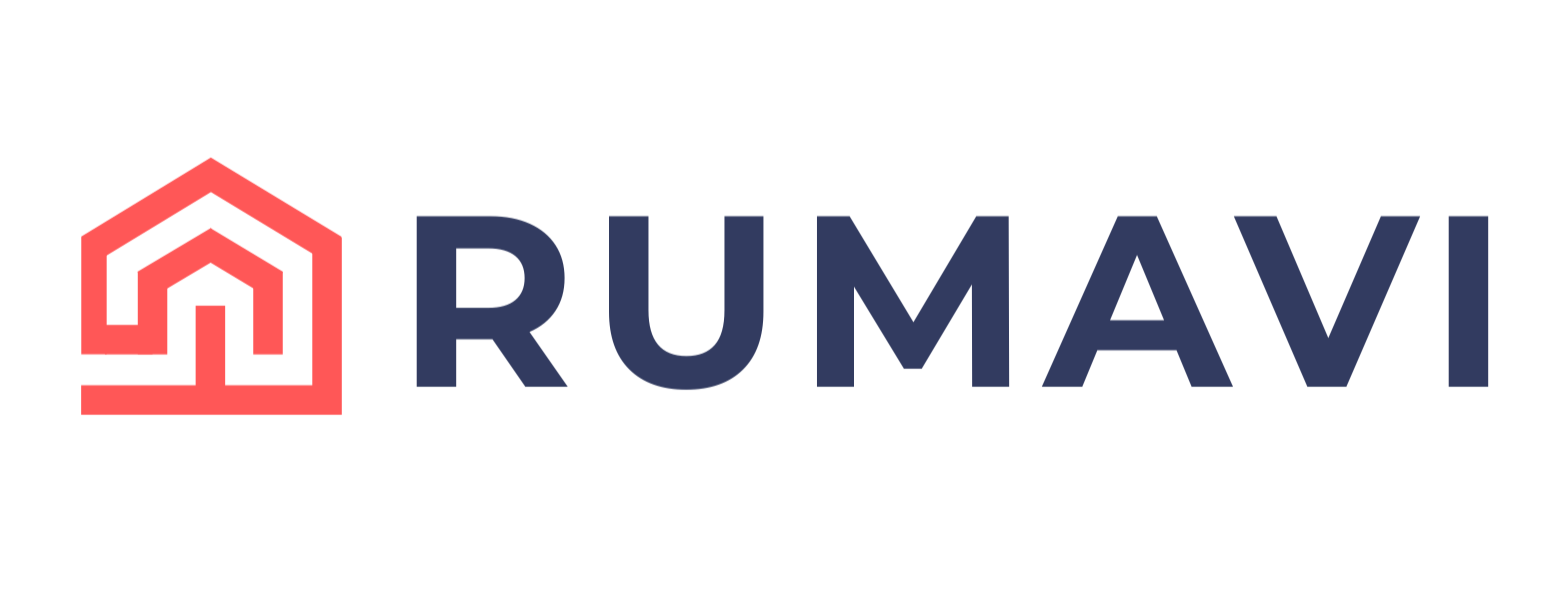Buying property in Bali offers exciting opportunities, but understanding the tax landscape is essential for protecting your investment. From transfer duties to annual obligations, this guide breaks down every cost foreign buyers face when investing in Indonesian real estate. Whether you're purchasing a villa in Canggu or exploring land in Ubud, knowing these expenses upfront means no surprises at closing.
2025 Bali Property Tax Rates at a Glance
- BPHTB (Transfer Tax): 5% of property value
- VAT on New Properties: 12% (developer sales)
- Luxury Tax (PPnBM): 20% (properties over IDR 30 billion)
- Annual PBB: 0.1%–0.5% of assessed value
- Seller's Income Tax: 2.5% of sale price
- Notary Fees: 0.5%–1% of purchase price
Tax rates and exemption thresholds vary by region. Always verify current regulations with a licensed notary before completing any transaction.
Property Transfer Tax (BPHTB): Your Largest Upfront Cost
The property acquisition tax, known as Bea Perolehan Hak atas Tanah dan Bangunan (BPHTB), represents one of your most significant closing costs. This one-time tax is charged at 5% of the property's transaction value or government-assessed NJOP (Nilai Jual Objek Pajak), whichever is higher.
Understanding the Exemption Threshold
In Bali, property transactions benefit from a deductible amount that varies by regency. Most areas apply an exemption between IDR 60–80 million, though this NPOPTKP (Nilai Perolehan Objek Pajak Tidak Kena Pajak) differs across regions. Always confirm your local exemption with your notary.
BPHTB Calculation Example
For a villa valued at IDR 3 billion with a IDR 60 million exemption:
BPHTB = 5% × (IDR 3,000,000,000 – IDR 60,000,000) = IDR 147,000,000
Who pays: The buyer covers BPHTB at closing. Your notary cannot register the title transfer until this tax is settled, making payment mandatory before ownership changes hands.
Notary and Legal Fees in Bali Property Transactions
Indonesian law requires all property transactions to flow through a licensed notary (PPAT). These professionals verify ownership, prepare the sale and purchase deed (Akta Jual Beli), and handle title registration with the Land Office.
Fee Structure and Services
- Typical range: 0.5%–1% of property value
- Covers: Title verification, deed preparation, registration, tax filings
- Additional costs: Government registration (IDR 50,000–100,000), stamp duty (IDR 10,000 per document)
High-value transactions often allow room for negotiation on notary fees. Choose a notary experienced in foreign ownership structures—their expertise in navigating Hak Pakai and PT PMA setups protects your investment.
Primary vs. Secondary Market: Tax Differences That Matter
Your tax obligations shift depending on whether you're buying new from a developer (primary market) or purchasing a resale property (secondary market).
Primary Market (Developer Sales)
- VAT (PPN): 12% on new properties as of January 2025
- Developer incentives: Some developers absorb BPHTB or notary fees to close deals
- Luxury tax: Properties exceeding IDR 30 billion face an additional 20% PPnBM
Secondary Market (Resale Properties)
- No VAT: Only applies to new construction
- Buyer pays: BPHTB + notary fees
- Seller pays: 2.5% income tax (PPh Final) on sale price
Planning a new build? Understanding VAT implications helps you budget accurately for developer purchases versus secondary market opportunities.
Foreign Ownership Options and Their Tax Implications
Indonesian law restricts direct freehold ownership (Hak Milik) for foreigners. Understanding your ownership structure options ensures compliance and protects your rights.
Hak Pakai – Right of Use for Individuals
Hak Pakai grants foreigners registered use rights for residential property. Requirements include a valid residence permit (KITAS, KITAP, or Second Home visa) and compliance with minimum property values.
- Duration: 30 years initially, extendable for 20 years, renewable for another 30 years (80 years total)
- Limitation: One property per foreigner
- Restriction: No commercial rental allowed
- Transferability: Can be sold to other eligible foreigners or Indonesian citizens
Hak Guna Bangunan (HGB) via PT PMA – Right to Build
Foreign investors establishing a PT PMA (Perseroan Terbatas Penanaman Modal Asing) can acquire HGB titles. This structure suits those planning commercial operations or multiple properties.
- Duration: 30 years, extendable to 80 years
- Requirements: Significant capital investment (typically IDR 10 billion minimum)
- Advantages: Commercial rental permitted, multiple properties possible
- Obligations: Ongoing corporate compliance and reporting
Leasehold (Hak Sewa) – Long-Term Land Rights
Leasehold arrangements allow foreigners to control property without ownership. Common terms span 25–30 years with renewal options.
- Lessor tax: 10% if they hold a tax number (NPWP), 20% without
- Lessee obligation: No tax due at lease signing
- Limitation: Underlying freehold remains with Indonesian owner
Avoid Illegal Nominee Arrangements
Using an Indonesian citizen to hold Hak Milik on your behalf violates agrarian law. The nominee becomes the legal owner with full rights to sell or encumber the property. Regulatory scrutiny has intensified—use only approved structures like Hak Pakai, HGB through PT PMA, or legitimate leasehold agreements.
Annual Property Tax (PBB): Your Ongoing Obligation
The Land and Building Tax (Pajak Bumi dan Bangunan or PBB) applies to all property owners annually. While relatively modest, staying current on PBB prevents transaction delays and legal complications.
How PBB Is Calculated
The government uses the assessed value (NJOP) as the reference price. The calculation takes 20% of the NJOP and applies a rate of 0.1% to 0.5%, depending on property value and location.
Regional Rate Examples
Badung Regency:
- Properties under IDR 1 billion: 0.1% of NJOP
- Properties above IDR 1 billion: 0.2% of NJOP
High-value properties: Can reach maximum rate of 0.5%
For a villa with NJOP of IDR 1 billion:
Annual PBB = 0.1% × IDR 1,000,000,000 = IDR 1,000,000
Tax bills arrive annually and must be paid at local banks. You'll need proof of current PBB payment to complete any property sale or transfer.
Hidden Costs Beyond Basic Taxes
Smart budgeting accounts for expenses beyond the standard tax line items. These additional costs, while smaller individually, add up quickly.
Due Diligence and Professional Services
- Title verification: 2–5 million IDR
- Property inspections: 3–10 million IDR
- Zoning verification: 1–3 million IDR
- Legal review: Variable based on complexity
Transaction and Service Fees
- Agent commissions: Typically 5% (usually seller-paid but factored into price)
- Currency transfer costs: Bank wire fees and FX spreads when moving funds into Indonesia
- Translation services: For document preparation and verification
- Insurance: Fire, earthquake, and property coverage (optional but recommended)
Community and Management Costs
- HOA fees: For gated communities
- Villa management: If renting out your property
- Utilities setup: Connection fees for electricity, water, internet
Budget rule: Add 10% on top of your purchase price for taxes and closing costs. This cushion covers transfer expenses, legal assistance, and unexpected fees that often surface during transactions.
Five Critical Mistakes That Cost Foreign Buyers
1. Underestimating Tax Obligations Based on NJOP
Taxes calculate from the higher of sale price or government-assessed NJOP. Assuming taxes only apply to your purchase price can leave you short at closing. Always verify the NJOP before making an offer.
2. Ignoring Annual PBB Accumulation
Sellers sometimes neglect PBB payments for years. Unpaid land and building tax becomes your responsibility upon purchase and must be cleared before title transfer. Request PBB payment history during due diligence.
3. Overlooking Zoning Restrictions
Properties on agricultural or green-belt land may prohibit villa construction or tourism permits. Verify spatial planning (PKKPR) compliance before purchase—rezoning is difficult and expensive.
4. Cutting Corners on Notary Selection
Your notary ensures title authenticity, drafts legally sound deeds, and handles tax payments correctly. Choosing based solely on price rather than experience with foreign ownership can create expensive legal problems later.
5. Forgetting the Contingency Fund
Small expenses like stamp duty, bank charges, and document translations accumulate. Prepare a contingency fund of at least 2% beyond your calculated costs to avoid last-minute scrambling.
Staying Tax Compliant: What Foreign Owners Must Know
Property ownership in Bali comes with ongoing tax obligations beyond the purchase transaction. Understanding these requirements keeps you compliant and protects your investment.
Annual Filing Requirements
- PBB payment: Due within six months of receiving your tax notice (SPPT)
- Rental income: Must be declared if generating income from your property
- Tax residency: Spending 183+ days annually in Indonesia triggers broader tax obligations
Rental Income Taxation
If you're renting your Bali property:
- Tax residents: 10% withholding on gross rental income
- Non-residents: 20% withholding (may be reduced under double taxation treaties)
- PT PMA structure: Corporate tax rate of 22% applies to rental profits
Working with experienced tax advisors and property consultants in Bali saves money and stress over the long term. Professional guidance helps you select the correct ownership structure, manage compliance, and plan for ongoing obligations efficiently.
Frequently Asked Questions
How much is the property transfer tax (BPHTB) in Bali?
BPHTB is charged at 5% of the property value after deducting the regional exemption (typically IDR 60–80 million in Bali). The buyer pays this tax at closing, and it must be settled before the notary can register the title transfer.
What are typical notary fees for property purchases in Bali?
Notary fees typically range from 0.5% to 1% of the purchase price. High-value transactions may allow negotiation toward the lower end. These fees cover title verification, deed preparation, registration, and tax filing services.
Do foreigners pay extra property tax in Indonesia?
No. Foreigners pay the same BPHTB (5%) and annual PBB (0.1%–0.5%) as Indonesian citizens. The difference lies in the ownership structures foreigners must use—Hak Pakai, HGB through PT PMA, or leasehold—not in the tax rates themselves.
Who pays the seller's income tax in property transactions?
The seller pays 2.5% income tax (PPh Final) on the sale price of freehold properties. This tax must be settled before the notary can finalize the deed. For leasehold properties, the lessor pays 10% (with NPWP) or 20% (without NPWP) on the lease value.
Is there annual property tax in Bali?
Yes. PBB (Land and Building Tax) is due annually at rates of 0.1% to 0.5% of the government-assessed NJOP value. Bills are sent yearly and must be paid within six months. Current PBB payment is required to complete any property sale or transfer.
Does VAT apply to all property sales in Bali?
No. VAT at 12% only applies to primary sales of new properties purchased directly from registered developers. Resale properties in the secondary market are not subject to VAT. Additionally, properties exceeding IDR 30 billion face a 20% luxury tax (PPnBM).
Can foreigners own freehold property in Bali?
No. Indonesian law prohibits direct foreign ownership of freehold (Hak Milik) property. Foreigners must use Hak Pakai (Right of Use), HGB through a PT PMA company, or leasehold arrangements. Avoid illegal nominee structures, as they provide no legal protection and violate Indonesian law.
How much should I budget for total property taxes and fees in Bali?
Budget at least 10% above your purchase price for all taxes and fees. This covers BPHTB (5%), notary fees (0.5%–1%), due diligence costs, and miscellaneous expenses like stamp duty and translations. For new properties from developers, add 12% VAT to your calculations.
Making Informed Property Decisions in Bali
Understanding Bali property taxes and notary fees protects your investment from unexpected costs and legal complications. By accounting for BPHTB, notary fees, annual PBB, and potential VAT or luxury tax, you enter transactions with clarity and confidence.
More importantly, choosing the correct ownership structure—whether Hak Pakai for personal use, HGB through PT PMA for commercial ventures, or leasehold for simpler arrangements—ensures compliance with Indonesian law. These decisions affect not just your immediate costs but your long-term rights and flexibility.
While individual costs may seem manageable, they collectively determine whether your purchase proceeds smoothly or hits obstacles. The 10% budget cushion above your purchase price isn't excessive—it's essential insurance for a legally sound transaction.
Foreign investment in Bali real estate continues to grow, driven by the island's lifestyle appeal and Indonesia's economic development. Those who succeed combine market knowledge with proper legal structure and tax planning. The complexity isn't insurmountable, but it demands respect and professional guidance.
Ready to Invest in Bali Property with Confidence?
Rumavi connects you with experienced property consultants, licensed notaries, and legal advisors who understand Bali's real estate landscape. We help foreign investors navigate ownership structures, tax obligations, and compliance requirements—turning complexity into clarity.
Disclaimer: This article provides general information about Bali property taxes as of November 2025. Tax rates, exemption thresholds, and regulations vary by region and can change. Always verify current requirements with licensed notaries and qualified tax advisors before completing any property transaction. Rumavi provides educational content and does not offer legal or tax advice.














